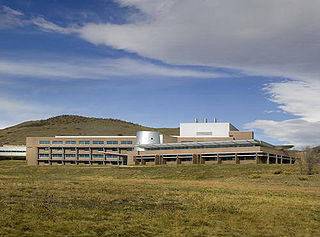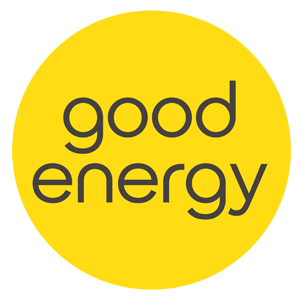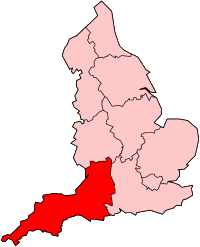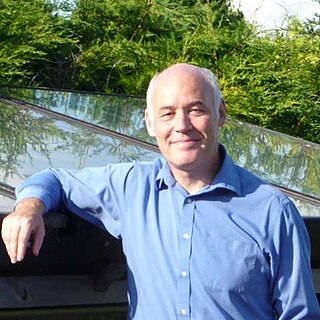Related Research Articles

The International Energy Agency (IEA) is a Paris-based autonomous intergovernmental organisation, established in 1974, that provides policy recommendations, analysis and data on the entire global energy sector. The 31 member countries and 13 association countries of the IEA represent 75% of global energy demand.

The National Renewable Energy Laboratory (NREL) in the US specializes in the research and development of renewable energy, energy efficiency, energy systems integration, and sustainable transportation. NREL is a federally funded research and development center sponsored by the Department of Energy and operated by the Alliance for Sustainable Energy, a joint venture between MRIGlobal and Battelle. Located in Golden, Colorado, NREL is home to the National Center for Photovoltaics, the National Bioenergy Center, and the National Wind Technology Center.

REN21 is a think tank and a multistakeholder governance group which is focused on renewable energy policy.

Good Energy Group PLC is a British energy company based in Chippenham, Wiltshire that provides services in the electrification of transport and decentralised renewable energy generation such as domestic solar panels. The company is also an energy retailer, and built a portfolio of wind and solar generation which was sold in 2022. Founded by Juliet Davenport, its CEO is Nigel Pocklington.

The South West of England Regional Development Agency (SWRDA) was one of the nine Regional Development Agencies set up by the United Kingdom government in 1999. Its purpose was to lead the development of a sustainable economy in South West England, investing to unlock the region's business potential. It was abolished along with all the other RDAs on 31 March 2012, with some of its functions being replaced by local enterprise partnerships.
Radio Regen is a charity based in Manchester, UK, that provides training in community radio.
Community Energy Scotland is an independent Scottish charity established in 2008 that provides advice and financial support for renewable energy projects developed by community groups in Scotland. The stated aim of Community Energy Scotland is 'to build confidence, resilience and wealth at community level in Scotland through sustainable energy development'.

The Renewable Energy and Energy Efficiency Partnership (REEEP) is a Vienna-based international organisation that advances markets for renewable energy and energy efficiency with a particular emphasis on the emerging markets and developing countries. Its primary focus is in de-risking and scaling up clean energy business models.
Energy Saving Trust is a British organization devoted to promoting energy efficiency, energy conservation, and the sustainable use of energy, thereby reducing carbon dioxide emissions and helping to prevent man-made climate change. It was founded in the United Kingdom as a government-sponsored initiative in 1992, following the global Earth Summit.
The Wave Hub is a floating offshore wind and wave power research project. The project is developed approximately 10 miles (16 km) off Hayle, on the north coast of Cornwall, United Kingdom. The hub was installed on the seabed in September 2010, and is a 'socket' sitting on the seabed for wave energy converters to be plugged into. It will have connections to it from arrays of up to four kinds of wave energy converter. A cable from the hub to main land will take electrical power from the devices to the electric grid. The total capacity of the hub will be 20 MWe. The estimated cost of the project is £28 million.

Sustainable development in Scotland has a number of distinct strands. The idea of sustainable development was used by the Brundtland Commission which defined it as development that "meets the needs of the present without compromising the ability of future generations to meet their own needs." At the 2005 World Summit it was noted that this requires the reconciliation of environmental, social and economic demands - the "three pillars" of sustainability. These general aims are being addressed in a diversity of ways by the public, private, voluntary and community sectors in Scotland.
The Renewable Fuels Agency (RFA) was a UK Government non-departmental public body, created by the Department for Transport to implement the Renewable Transport Fuel Obligation or RTFO. The Agency ceased to exist at midnight on 31 March 2011 The Renewable Fuels Agency (RFA) was the UK's independent sustainable fuels regulator. The agency awards Renewable Transport Fuel Certificates (RTFCs) to suppliers of biofuels in the UK, ensures companies meet their annual obligations and runs the RTFO's carbon and sustainability reporting system.

Community wind projects are locally owned by farmers, investors, businesses, schools, utilities, or other public or private entities who utilize wind energy to support and reduce energy costs to the local community. The key feature is that local community members have a significant, direct financial stake in the project beyond land lease payments and tax revenue. Projects may be used for on-site power or to generate wholesale power for sale, usually on a commercial-scale greater than 100 kW.
Possible is a charity that enables people to take practical action on climate change, and combines these local actions to inspire a more ambitious approach to the issue at every level of society.

The Royal Foundation of The Prince and Princess of Wales is an independent United Kingdom-based charity which supports the non-profit work of the Prince and Princess of Wales. Their projects revolve around conservation, environmental issues, early childhood development, mental health, emergency services, and homelessness.

Philip Rowland Wolfe MBE is one of the pioneers of the British renewable energy sector.
Science and technology is Jordan's growing economic sector. This growth is occurring across multiple industries, including information and communications technology (ICT), solar and wind energy and nuclear technology.
The European Climate, Environment and Infrastructure Executive Agency (CINEA) is the European Commission agency which manages decarbonisation and sustainable growth. It is the successor organisation of the Innovation and Networks Executive Agency (INEA). Established on 15 February 2021, with a budget of €50 billion for the 2021-2027 period, it started work on 1 April 2021 in order to implement parts of certain EU programmes. The Agency will have a key role in supporting the European Green Deal, with a focus on creating synergies to support a sustainable, connected, and decarbonised Europe.

Energy in Wales is the production of electricity in Wales.
References
- ↑ "About Regen SW". Regen SW. Retrieved 5 March 2016.
- ↑ "Shared Ownership Taskforce Report". RenewableUK. 3 November 2014. Archived from the original on 8 May 2015.